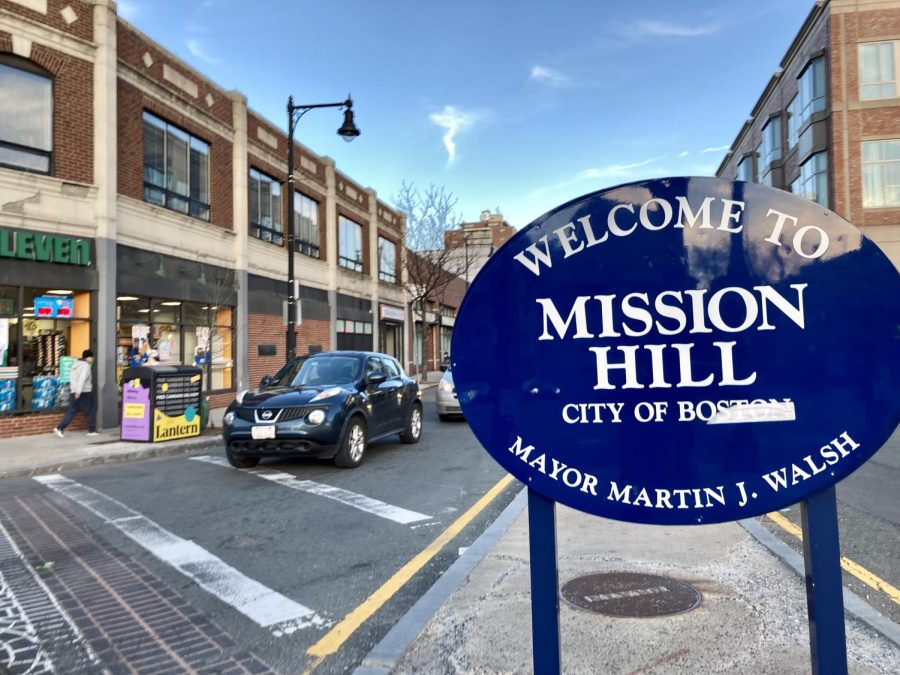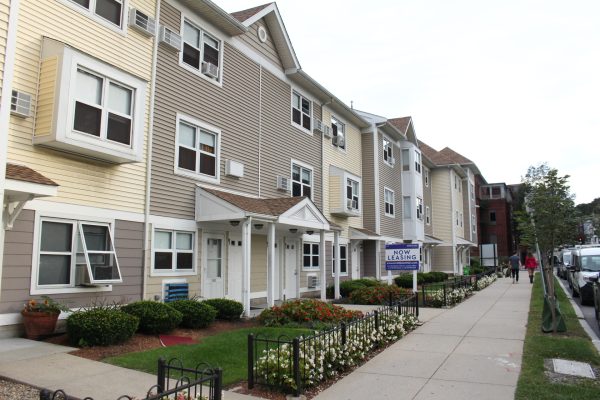NU students allege police misconduct when breaking up parties at Mission Hill
Mission Hill is a popular location for students looking for off-campus housing, but this can cause tension with local long-time residents.
May 26, 2022
Multiple Northeastern students have voiced complaints against a detective in the Boston Police Department, or BPD, alleging misconduct when breaking up student gatherings on Mission Hill.
The allegations, according to a complaint filed March 7 by fourth-year civil engineering major Sophia Fagone, include use of excessive force, lying on police reports and entering residences without probable cause.
The complaints came after an increased police presence at Mission Hill, driven in part by the Mission Hill Problem Properties Task Force, according to member Dave Greenup.
“If you’re gonna shut down a party, that’s totally fine, but there’s a certain way to do it,” said Kamyab Pirouz, a third-year biology major.
Fagone filed the complaint against the officer through the Office of Police Accountability and Transparency, or OPAC, after hearing of her friends’ interactions with him. The department has since opened an investigation, and, Fagone said, she has compiled over 20 student accounts of misconduct involving him. Many of the students have agreed to do formal interviews with OPAC, Fagone said.
Aidan Cusack, a third-year business administration major in Phi Delta Theta fraternity, said the officer never explained his probable cause when he allegedly entered Cusack’s home to break up a party in February.
Ethan Ripps, a third-year bioengineering major who is also in a fraternity, said he had a similar experience.
“[The officer] said, ‘I can come into any house I want to if I think you have a party,’ or something along those lines,” Ripps said.
Pirouz, a member of Delta Tau Delta fraternity, said that the officer wrote on a police report that there were over 100 people at his house at a party in October. Pirouz said that capacity was not physically possible. That same night, when Pirouz asked the officer if he had a warrant, the officer was allegedly “aggressive.”
“Instead of just explaining what his reason was, [he] just threatened to arrest me,” Pirouz said.
Pirouz and at least four other students in his fraternity have been sent to court and threatened with misdemeanors. All of them were given six month probationary periods.
Pirouz said fraternity parties have “pretty much shut down” since November out of fear of legal charges and what he feels is an excessively strict police presence.
The officer has been employed by the BPD for over 25 years and is the among the highest paid employees of the City of Boston. Since 2010, he has had two prior sustained complaints for neglecting duty. The officer has also been honored for his work — in 2014, he was among the BPD officers who received TOP COPS award and met former President Barack Obama for his role in the apprehension of the Boston Marathon bombers.
The BPD did not respond to multiple requests for comment.
“Before, they had the understanding that we were college kids,” Pirouz said. “They wouldn’t charge us and nothing serious would happen.”
On March 5, a video of BPD officers using a battering ram to enter a student’s home garnered attention on Reddit. The police report of the incident stated the residents refused to let the officers inside after they announced themselves, but to many, the method of entry still seems extreme.
“I guess the probable cause is suspicion of underage drinking, but I feel like you can use that in any context, so I feel like that’s not fair to use that as a way to just walk into someone’s house,” Pirouz said.
For many long term residents, however, a stricter police presence isn’t a bad thing.
Mary Ann Nelson has lived on Mission Hill since 1985. She frequently sees beer cans littered across her street, and said she has neighbors who can’t sleep because of loud student parties.
“As residents we ask the police to be more aggressive about parties because they really do influence the quality of life in the neighborhood,” Nelson said.
Another resident, Greenup, joined the Mission Hill Problem Properties Task Force in October when his neighbor was allegedly struck by a student after asking for music to be turned down during a party. Since then, Greenup said, he has helped the task force take initiative and “zero in” on student gatherings.
“I believe Mission Hill residents are happy that the police are taking extreme action,” Greenup said. “We call this place home, and we are not getting respect from some students.”
Greenup particularly expressed frustration with the common assertion that Mission Hill is a student neighborhood. While 37% of residents are ages 18 to 24, 35% are also ages 35 to 64.
The Mission Hill Problem Properties Task Force is composed of long-term residents, city councilors, a BPD liaison and representatives from nearby universities, including Northeastern. The task force also has a fund which pays for an additional police detail to patrol the neighborhood Thursday, Friday and Saturday nights for loud student parties.
Though Northeastern contributes to this fund, the university has no affiliation with the accused officer, said Shannon Nargi, media relations manager, in an email statement to The News on March 25.
Still, Siddarth Simon, a third-year computer engineering and computer science combined major, called it “disadvantageous” for the university if “they can’t provide some social life.”
“What ultimately has to happen is a discourse between the Mission Hill community and the Northeastern students that are renting short-term,” Simon said. “It’s gotten to the point where it’s not really helping the community, it’s definitely not helping us as students.”


















